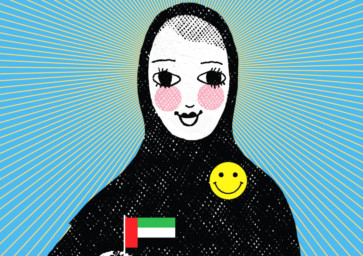
The question of women equality in the UAE is always brought under the limelight with a negative connotation that they are oppressed, discriminated against and constrained — especially in the social, cultural, economic and political perspective. To the UAE, it is just a stereotypical challenge; to other Arab countries, the problem is much more complex.
Over the past few years, the UAE has worked on executing a clear roadmap adequately capitalising investments in key areas including education, health, economic and political participation. This has positively resulted in having the UAE lead the Middle East and North Africa (Mena) for having the narrowest gender gap according to the 2012 Global Gender Report published by World Economic Forum. Although leading the Mena region, and with all the incredible efforts the UAE made, it was still ranked 107 out of 135 countries listed in the report.
The Global Gender Report ranks countries in four key areas: Economic participation and opportunity, political empowerment, health and survival, educational attainment, political participation and economic equality. It was reported that Iceland is the most advanced country in the world in terms of gender equality for the fifth consecutive year, followed by Finland and Norway.
I wanted to understand what the three top countries did to achieve such rankings. I reviewed the report and questioned the measurements and their applicability to UAE, keeping in mind the maturity of the sociopolitical systems of the top three Nordic countries. To summarise the findings: The three Nordic countries have rated highly in political participation because they have allowed women to participate in voting since the early 1900s. They also have reached almost 99 per cent literacy levels for both genders. They exhibited high healthy lifestyle expectancy and females were active participants in the economy.
After understanding the details, I am more empowered to discuss my position. As an Emirati female, I would like to start by fairly and independently reviewing the status of females in my country. The UAE is 42 years young and in terms of the number of years and the achievements so far, they are indeed dramatic. The country has been very supportive of women since its inception. The founding father of the nation, late Shaikh Zayed Bin Sultan Al Nahyan, was a pioneer in this area. Females have been encouraged to actively participate and effectively contribute to public decision-making. The constitution clearly states that women have equal rights as men and it ensures that they are provided equal opportunities in employment and advancement and equal pay at the work place. And in many cases, a female is favoured over a male candidate — form of an unannounced affirmative action. Shaikh Zayed has set the foundation that is today being followed by the Rulers of the emirates.
Her Highness Shaikha Fatima Bint Mubarak, Chairwoman of the General Women’s Union, has worked continuously in establishing the position of women in the country and in promoting its sustainable development. It is through her visionary outlook that we have achieved what no other Arab country has in decades. It is no wonder that we take pride in calling her our model and “Mother of the Nation”. Emirati women enjoy vast privileges that are envied. Based on Islamic rulings, the man is the care provider for the family and financial responsibility rests with him.
Females play key roles along with males in the development of the country. The UAE has women serving as Federal National Council members, federal judges, federal cabinet ministers, ambassadors, certified fighter pilots in the UAE Air Force, soldiers in the Army, in the police force, working as mechanics and in many other previously unconventional jobs. Some of these positions have been deliberately selected by the government to ensure the presence of women. A rule was issued in 2012 by the UAE Cabinet, which stipulated compulsory presence of a female Emirati member on the board of every government entity.
The Chambers of Commerce in the country have reported an estimated value of $3.4 billion (Dh12.5 billion) that is collectively run by more than 12,000 female members of business councils across the UAE, who run more than 11,000 projects. The UAE has the highest rates of females in perusing their higher education in the world.
The UAE is always at the forefront when it comes to taking bold steps to creating new policies, benefitting females and ensuring their well-being in society. In 2009, under the directives of President His Highness Shaikh Khalifa Bin Zayed Al Nahyan, a decree was issued that granted children who were born to Emirati mothers, but to expatriate fathers, the right to citizenship.
To further demonstrate commitment to women, the UAE has acceded to several organisations, including the Convention on the Elimination of All Forms of Discrimination against Women, and the International Convention on the Elimination of All forms of Racial Discrimination.
In my opinion, the dynamics of the UAE have changed since the establishment of the country and no report or measurement will be able to capture that accurately. Reports help us create a blueprint and to establish a guideline. Realistically, we should be proud because we have achieved many milestones to date.
Emirati females are pioneers in their fields. The empowerment and recognition they receive from the leaders is the fuel that keeps them actively generous. Contrary to conventional wisdom, Emirati women are neither passive passengers nor are they apathetic towards the drive for development. They are actually the engines that pull the country towards prosperity. That is why they are the happiest women in the world.
Shaikha Al Maskari is an Emirati writer from Abu Dhabi. You can follow her on Twitter at www.twitter.com/uaeyah








